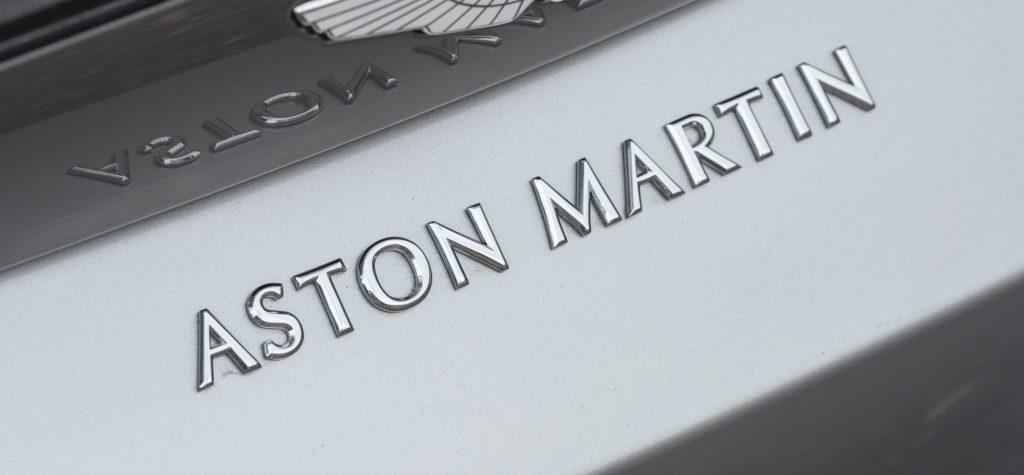Mercedes-Benz to take 20% stake in Aston Martin
29 October 2020

29 October 2020
Mercedes-Benz AG is set to increase its stake in Aston Martin up to 20%. In exchange, the sports car brand will secure access to the German manufacturing group’s electric-vehicle (EV) technology. This will include next-generation electric and hybrid powertrains, alongside other components and systems, for launches through to 2027.
The carmakers first joined forces in 2013, when Mercedes-Benz took a 5% stake in Aston Martin, working with the brand on engine development. This involved the supply of AMG V8 engines and components for an electrical architecture. But following a troubled initial public offering in 2018, alongside capital increases, the German group’s stake in the sports car manufacturer dropped to roughly 2.6%. Now, the two companies are re-establishing a more committed collaboration.
Strategic sharing
′We take another major step forward as our long-term partnership with Mercedes-Benz AG moves to another level with them becoming one of the company’s largest shareholders,’ said Lawrence Stroll, executive chairman of Aston Martin. ′Through this new expanded agreement, we secure access to world-class technologies to support our long-term product expansion plans, including electric and hybrid powertrains and this partnership underpins our confidence in the future.’
The EV technology-for-shares exchange will take place in stages over the next three years, up to a total share value of £286 million (€316 million). This move will take Mercedes-Benz’s holding in Aston Martin up to no more than 20%. The German carmaker confirmed it has no intentions to increase its stake in the British manufacturer beyond this level.
′We already have a successful technology partnership in place with Aston Martin that has benefited both companies,’ said Wolf-Dieter Kurz, head of product strategy at Mercedes-Benz Cars. ′With this new expanded partnership, we will be able to provide Aston Martin with access to new cutting-edge technologies and components, including next-generation hybrid and electric-drive systems. The supply arrangements for these new technologies will be on agreed commercial terms. We look forward to continuing to work together with Aston Martin and we wish the company every success in its next stage of growth.’
The move makes sense for Mercedes-Benz, having recently unveiled a new strategy that focuses on the luxury-car market and EVs. ′We intend to build the world’s most desirable cars,’ said Daimler chairman Ola Källenius. ′It is about leveraging our strengths as a luxury brand to grow economic value and enhancing the mix and positioning of our product portfolio.’
Continuing collaborations
Daimler Trucks has just struck a new strategic partnership with Google-owned self-driving technology developer, Waymo. Initially, the focus will be on combining Waymo’s Level 4 automated-driver technology with a unique version of Daimler’s Freightliner Cascadia, with the aim of bringing the result to US customers in the coming years. The two companies will also look into expanding into other markets and brands in the near future.
′As leader of our industry, Daimler Trucks is the pioneer of automated trucking. In recent years, we have achieved significant progress on our global roadmap to bringing series-produced highly automated trucks to the road,’ said Martin Daum, chairman of the board of management of Daimler Truck AG. ′With our strategic partnership with Waymo as the leader in autonomous driving, we are taking another important step towards that goal. This partnership complements Daimler Trucks’ dual strategy approach, of working with two strong partners to deliver autonomous L4 solutions that are seamlessly integrated with our best-in-class trucks, to our customers.’
In the last few years, Waymo has been establishing and strengthening its partnerships. Most recently, it announced expansions of its partnerships with Fiat Chrysler Automobiles (FCA) and Volvo, in both cases focusing on Level 4 autonomous systems. In June last year, Waymo also partnered with Renault and Nissan, to explore the introduction of driverless mobility services in France and Japan. In 2018, Jaguar Land Rover entered a ′long-term strategic partnership’ with the company, supplying EVs to a development project.